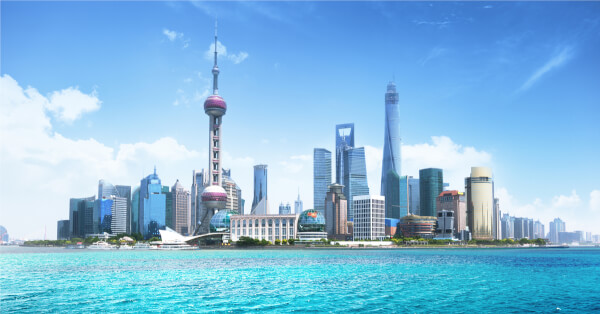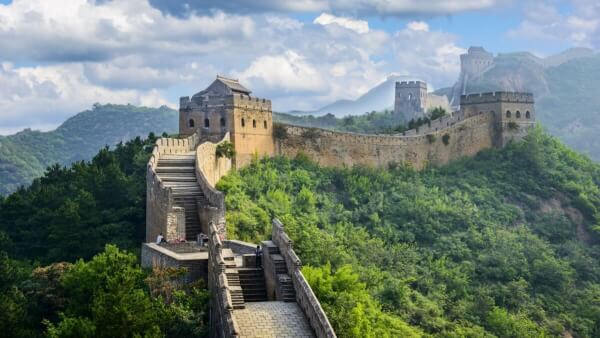Complete Guide to China's Visa-Free Travel: Countries, Requirements & Policies (2025)
Discover China's visa-free travel policies: We cover the eligible countries, requirements, and transit options in our guide to travel to China without a visa.

If you're planning a trip to China, understanding the local currency and banking system is crucial for a smooth experience. This guide covers the Chinese currency (Renminbi), where to find and exchange money, and essential banking information. We'll also highlight how Wise can be a valuable tool for managing your money in China.
The official currency of China is the Renminbi (RMB), often referred to as the Yuan (CNY). While "Renminbi" is the official name of the currency (meaning "people's currency"), "Yuan" is the unit of account. Think of it like "Sterling" (the currency) and "Pound" (the unit) in the UK.
While some tourist-oriented businesses, particularly in heavily-visited areas, might accept foreign currencies, this is not the norm. Relying on foreign currency is strongly discouraged. Even near Hong Kong, where Hong Kong Dollars (HKD) might be accepted, the exchange rate offered will likely be very unfavorable. Use Renminbi (RMB) for all your transactions.
| Names & Nicknames | Yuan Renminbi, Yuan, Renminbi, Jiao, Fen |
|---|---|
| Symbols | CNY, RMB, CNH, CN¥, ¥ |
| 1 CNY | 1 Yuan is divided into 10 Jiao, and 1 Jiao is divided into 10 Fen. |
| CNY Coins | Coins are available in denominations of 1 Fen, 2 Fen, 5 Fen, 1 Jiao, 5 Jiao, and 1 Yuan. However, due to their low value, Fen coins are rarely used. You'll mostly encounter 1 Jiao, 5 Jiao, and 1 Yuan coins. Chinese retailers often round prices to avoid small denominations like Fen. |
| CNY Banknotes | Banknotes are issued in denominations of 1 Jiao, 2 Jiao, 5 Jiao, 1 Yuan, 2 Yuan, 5 Yuan, 10 Yuan, 20 Yuan, 50 Yuan, and 100 Yuan. You'll primarily use the Yuan banknotes. Jiao banknotes are becoming less common, but are still in circulation. |
China's exchange rate is closely managed, meaning the rates tend to be relatively consistent across different exchange locations within the country. Unlike many other countries, airport exchange kiosks in China often offer rates comparable to ATMs. However, they usually charge transaction fees, making ATMs a slightly better option.
You'll almost always get a better exchange rate in China than you would back home. Major Chinese banks (like those listed below) often have 24-hour branches that offer currency exchange services. However, it's wise to arrive with a small amount of CNY (a few hundred) to cover initial expenses like transportation and immediate needs.
Crucially, keep all receipts from your currency exchange transactions. You'll need these receipts to exchange any leftover Yuan back into your home currency at the end of your trip. Without them, banks will likely refuse the exchange. Larger hotels may offer limited currency exchange, but the rates are typically less favorable. Absolutely avoid exchanging currency on the black market (street vendors) due to the high risk of receiving counterfeit banknotes.
The CNY was previously pegged to the US dollar, but this peg was removed in 2005. The Yuan now operates under a managed floating exchange rate system, influenced by market supply and demand and a basket of foreign currencies.
There are annual exchange limits for both Chinese and foreign citizens. While the specific limit can change, it's generally around the equivalent of US$50,000 per year. To exchange currency exceeding this limit, you'll typically need to provide additional documentation and justification. For regular tourist amounts, you'll simply need to present your passport in person at the bank.
Tipping is not customary in mainland China. In most situations, attempting to tip can be considered impolite or even condescending. The main exception is for bellhops in high-end, international hotels who may be accustomed to receiving tips from foreign travelers.
Traveller's Cheques are highly impractical in China. They are an outdated method of carrying money and are rarely accepted. Finding a bank or business that will cash them can be extremely difficult and time-consuming. Rely on ATMs, debit/credit cards, and cash instead.
While credit and debit card acceptance is increasing, especially in larger cities and tourist areas, cash remains king in China. Many smaller businesses, markets, local restaurants, and transportation providers will only accept cash. Major international credit cards (Visa, Mastercard, American Express) are generally accepted at larger hotels, department stores, and restaurants catering to international visitors. You may be asked to show your passport for identification when using a credit card.
A significant development in China's payment landscape is the widespread use of mobile payments, particularly WeChat Pay and Alipay. These mobile payment platforms are ubiquitous, even for small transactions. While it used to be difficult for foreigners to set up these accounts without a Chinese bank account, it's becoming increasingly accessible. Research the latest requirements and setup procedures before your trip, as this can significantly enhance your payment experience.
Opening a bank account in China as a foreigner is possible, but it can involve some paperwork. You'll generally need your passport, a valid visa, and potentially proof of residence (e.g., a rental agreement or hotel confirmation). If you open an account, you'll receive a UnionPay debit card, which is widely accepted throughout China.
Counterfeit banknotes, while not extremely common, do exist. One common (though not foolproof) method to check for authenticity is to feel for the texture on Mao Zedong's collar on the larger denomination notes. A raised texture suggests the bill is more likely to be genuine. However, the best way to avoid counterfeit bills is to use reputable ATMs and exchange services.
China has an extensive ATM network, making it relatively easy to withdraw cash. Most ATMs offer instructions in English and accept international cards. However, it's advisable to bring multiple cards (from different networks, e.g., Visa and Mastercard) in case one is not accepted at a particular ATM. Look for ATMs at airports, major hotels, department stores, and bank branches.
Here are some ATM locator links for major networks:
ATM withdrawal limits in China might be lower than what you're accustomed to. This is often a security measure. If you need a large amount of cash, it's best to make multiple withdrawals over several days. Be aware that your home bank will likely charge a foreign transaction fee and potentially an ATM withdrawal fee. Check with your bank before your trip to understand these fees.
Below is a list of major retail banks and international banks with a presence in China:
While traditional methods like ATMs and currency exchange are available, they can often involve hidden fees and less favorable exchange rates. For a more transparent and cost-effective way to manage your money in China, consider Wise.
Here's how Wise can benefit you:
By using Wise, you can potentially save a significant amount of money on currency exchange and international money transfers compared to traditional banks and other providers. It's a smart way to make your travel funds go further in China.
*Please see terms of use and product availability for your region or visit Wise fees and pricing for the most up to date pricing and fee information.
This publication is provided for general information purposes and does not constitute legal, tax or other professional advice from Wise Payments Limited or its subsidiaries and its affiliates, and it is not intended as a substitute for obtaining advice from a financial advisor or any other professional.
We make no representations, warranties or guarantees, whether expressed or implied, that the content in the publication is accurate, complete or up to date.

Discover China's visa-free travel policies: We cover the eligible countries, requirements, and transit options in our guide to travel to China without a visa.

China is one of the oldest civilisations on Earth and draws millions of tourists from around the world each year. With its millennia of history showcased...

While China is major destination for business-people and tourists alike, credit cards aren’t as widely accepted as you’d expect. Sure, your plastic will...